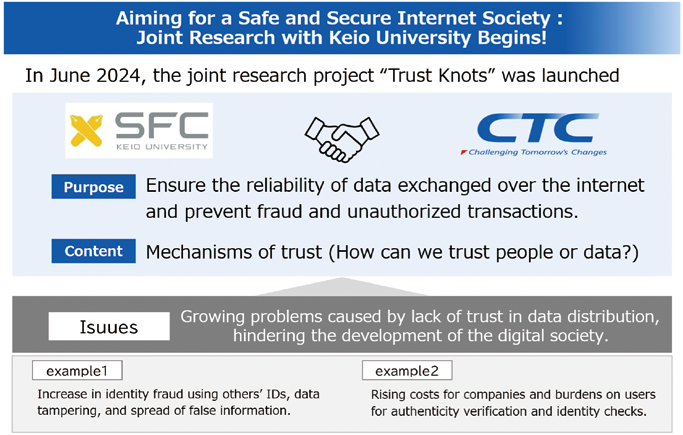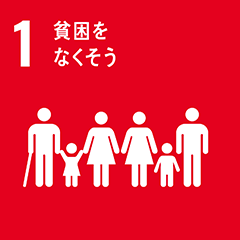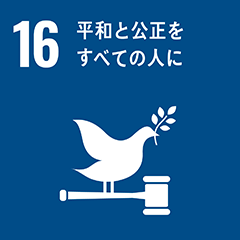Inochi Declaration
Create a society where mutual trust is possible both online and offline. To achieve this, we must leverage digital technologies that prevent identity fraud and enable secure communication.
With the spread of digital society, our lives have become increasingly convenient. We now shop, interact, and communicate online as a routine part of daily life. However, major social issues have also emerged—such as identity fraud, where it is unclear whether we are truly communicating with the intended person, and fake news, which makes it difficult to verify the accuracy of information.
In recent years, the relationship between our “digital self” and our “real-world self” has undergone major changes. Online harassment and defamation have led some to feel that their “digital self” is under threat—sometimes with devastating real-world consequences, including loss of life. There have also been cases where individuals’ digital selves are impersonated or have their information harvested without consent. These trends reveal a digital imbalance of power, creating new forms of social and economic inequality.

Source: ITOCHU Techno-Solutions Corporation
The “digital self” is also referred to as a “digital identity.” Across the globe, international standardization organizations are working toward the development of a reliable digital society where digital identities can be handled securely. To build a trustworthy digital society, three elements are crucial:
1.Verifiability: The ability for individuals to confirm that people or data have not been tampered with.
2.Controllability: The ability for individuals to manage and control their own personal data.
3.Interoperability: The ability for different systems and services to connect and exchange data seamlessly.
First, regarding verifiability, Japan’s government is advancing the “Trusted Web” initiative. This initiative is part of efforts to realize the DFFT (Data Free Flow with Trust) concept adopted at the 2019 G20 Osaka Summit. DFFT aims to promote international, borderless data flows that are trusted and secure—protecting privacy, security, and intellectual property while enabling the use of data to solve social and business challenges. In line with this concept, Keio University and ITOCHU Techno-Solutions Corporation have launched joint research to enhance the reliability of data circulation through digital verification.
Next, in terms of controllability, new systems are being developed to allow individuals to carry their own data with them and decide which data to disclose to service providers—giving users greater control over their digital lives.
Lastly, on the topic of interoperability, global efforts are underway, including the work of SIDI Hub (Sustainable and Interoperable Digital Identity), a community formed by nonprofit organizations such as the OpenID Foundation. These groups aim to build international frameworks that define technologies and cross-border rules for sustainable and interoperable digital identities. Their emphasis on community building, not just technical solutions, resonates with the Inochi Forum’s vision of empathy and mutual support.
By embedding these three core elements into online services around the world, we can build a safer digital society—one in which people can communicate with confidence and where every Inochi unleashes its radiant light in the digital age.
The Inochi Forum will continue to collaborate with organizations advancing these efforts, working toward a safe digital society by promoting technological development, implementation, and international cooperation—together with diverse stakeholders.
[References]
・ Trusted Web Promotion Council
https://www.digital.go.jp/policies/trust/trustedweb
・ Digital Agency – DFFT Overview
https://www.digital.go.jp/policies/dfft
・ Joint Research by Keio University and ITOCHU Techno-Solutions Corporation
https://www.ctc-g.co.jp/company/release/20240802-01772.html
・ OpenID Foundation
https://openid.net/
・ SIDI Hub
https://sidi-hub.community/
[Action Platform]
Peace and Human Rights
[SDGs]




